IRGC-Linked Website Highlights Iran’s New Ballistic Missile
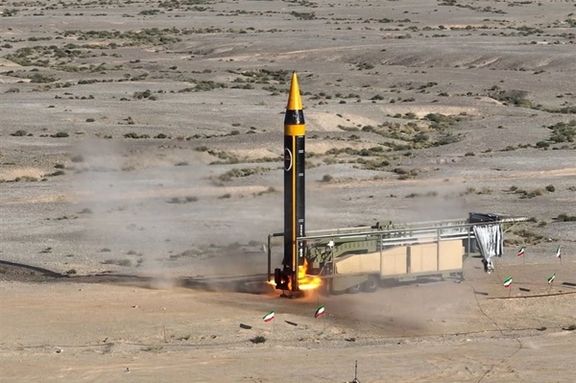
Fars news agency affiliated with the Revolutionary Guard Sunday described Iran’s new ballistic missile, Khorramshahr, as super-capable, and a response to Israeli threats.

Fars news agency affiliated with the Revolutionary Guard Sunday described Iran’s new ballistic missile, Khorramshahr, as super-capable, and a response to Israeli threats.
Saying that the missile can carry a one-ton warhead, which can evade radar and is immune to air defenses, Fars added that Iran introduced the weapon amid Israeli threats of an attack.
Quoting Prime Minister Benjamin Netanyahu and other Israeli officials who have said Israel will do everything in its power to prevent Iran from acquiring nuclear weapons, Fars insisted that “it is the Zionists who constantly seek tensions.”
While the Islamic Republic is dangerously getting closer to the nuclear threshold, the United States has also repeatedly announced that “all options are on the table”. President Joe Biden has vowed not to allow Iran to acquire nuclear weapons.
Fars claimed that top Iranian officials have repeatedly announced that their goal is “peace and instability in the region.” However, Iran’s Islamic regime has constantly threatened Israel with attacks and destruction.
This year, Iranian officials openly called for more attacks by their proxy forces around Israel and to expand their operations, boasting of dozens of daily attacks.
Earlier this month, Iran International reported that the Iranian regime had urged the Palestinian Hamas militant group to join forces with the Islamic Jihad for a new round of attacks against Israel.
Gen. Mohammad-Reza Naghdi, deputy to IRGC's chief commander in April claimed that last year 10,000 attacks took place against Israel taking credit for standing behind what the regime calls “the resistance front.” Naghdi said, “This is the revenge of the Islamic Revolution; the destruction of the Zionist regime.”

Dadban, a group of pro-bono lawyers in Iran defending political prisoners and rights activists, has warned about the potential execution of three young men in Tehran.
In a report Friday, Dadban said the three young men – Milad Armoun, Mehdi Hosseini and Alireza Kafaei -- have been charged with Muhariba (pronounced moharebeh in Persian) for the killing of a 21-year-old Basiji militia member named Arman Aliverdi in Tehran’s Ekbatan neighborhood October 26 amid nationwide protests.
Muhariba is an Islamic-Arabic term that in the lexicon of the Iranian regime means bearing arms and “fighting God” or “waging war against God,” and carries the death penalty.
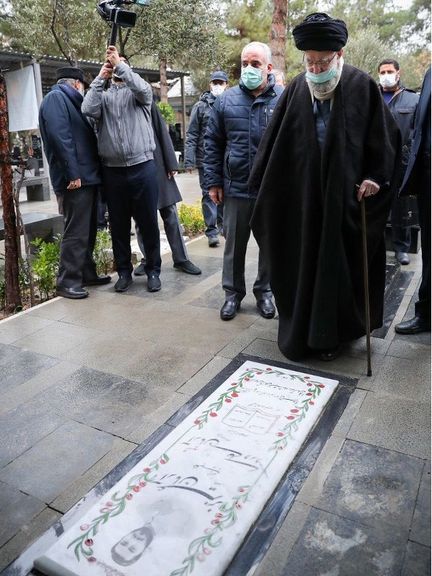
A video circulating on social media at the time showed Aliverdi bleeding from the face and head while a protester kicked him. He later died in hospital. Authorities claim protesters also stabbed him.
Defendants in the case have denied stabbing Aliverdi who the residents of Ekbatan say had been trying to infiltrate the protesters to identify their leaders.
A young woman, who identifies herself as Aidi and runs the neighborhood’s popular Twitter account, told Iran International that the case is still under investigation and the accused have not been sentenced yet.
According to Payam Dorfeshan who represents one of the defendants in the case, the accused were tortured to confess to Aliverdi’s killing and implicate each other, Dadban said.
It also reported three other defendants, Mehdi Hosseini, Hossein Nemati and another yet unnamed young man apparently arrested in Ahvaz recently, have been charged with “complicity in murder” and “propaganda against the regime”.
After the incident, security forces from various agencies carried out many raids in Ekbatan and arrested at least fifty young protesters. Fourteen of the detainees were eventually indicted but others were freed later for lack of any evidence of their involvement in Aliverdi’s killing.
Dadban quoted Dorfeshan as saying that security forces’ violent daytime and night raids in Ekbatan were meant to arrest defendants and other protesters and instill fear among the residents.
The west Tehran neighborhood was an epicenter of protests ignited by the death of Mahsa Amini, the 22-year-old woman who was fatally injured in September 2022 while in police custody following her arrest for not wearing “proper” hijab.
“These raids have seriously affected the mental health of the residents, particularly children.There are reliable reports about sleep disturbance and nightmares among children after these raids. Their drawings also show violent scenes as a result of [witnessing] the raids,” he said.
During the heat of the protests, Basij militiamen and officers of various intelligence and security forces in plainclothes attacked chanting young people who marched in small groups around the blocks of apartments in Ekbatan.
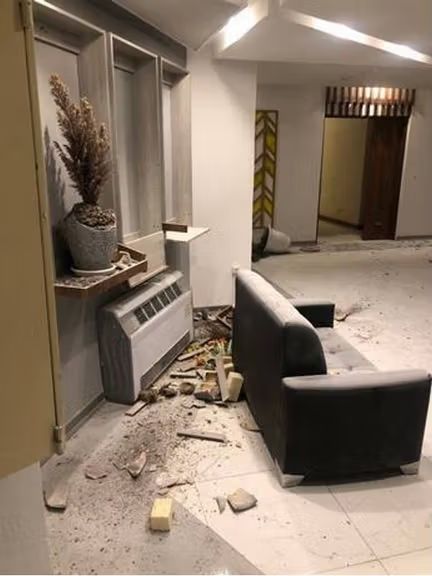
Basijis and other security forces on several occasions shot at people’s windows indiscriminately, rampaged the entrance lobbies in several blocks, broke the windows, and destroyed the lobby furniture and intercoms to give the residents a lesson.
The ever-present Basij have four bases within the five square kilometer complex which has 15,500 apartments and a population of around 45,000.
Regime forces often used tear gas, shot pellets at protesters for chanting “Death to Khamenei” and “Down with the Dictator” every night, and made arrests both outside and inside the buildings.
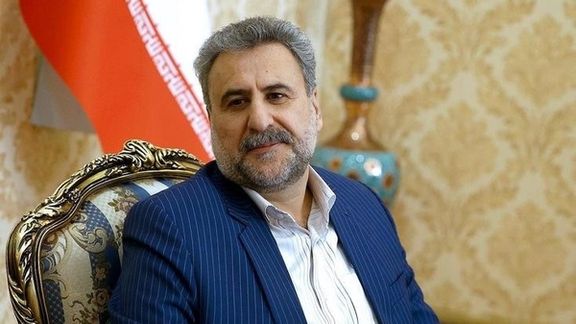
A prominent Iranian politician has blamed the inexperience of Iranian diplomats for tensions with the Taliban in Afghanistan and clashes at the border.
Heshmatollah Falahatpisheh, former head of Iranian parliament's National Security and Foreign Relations Committee said in an interview with Rouydad24 website on May 27 that "the most intimidated individuals in Iran's Foreign Ministry are in charge of ties with Afghanistan." He was probably referring, among others, to Hassan Kazemi Qomi, Iran's ambassador to Kabul.
The politician’s remarks were published on the same day when a serious border skirmish took place killing at least three people from both sides.
On May 25, Iran's Foreign Minister Hossein Amir Abdollahian was quoted as saying, "We are concerned about sporadic clashes at the border between Iran and Afghanistan during the past months."
Falahatpisheh told Rouydad24 that "Afghanistan has the upper hand in relations with Iran as Kabul uses a major part of Iran's share of water in the river Hirmand (Hilmand in Afghanistan) for poppy cultivation, a plant from which Afghans extract opium." Falahatpisheh said that the Taliban's annual income from selling narcotics is more than what Iran spends on developmental projects during the year.
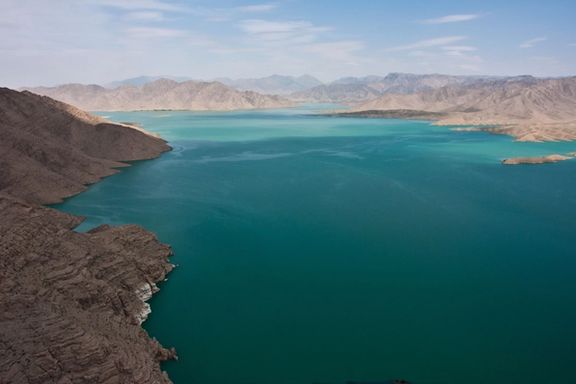
Meanwhile, he criticized Iran's "intimated" diplomats who have handed over Afghanistan's embassy in Tehran to the Taliban although Iran officially does not recognize their regime in Afghanistan as the country's government. Amir-Abdollahian said two days before the latest clash at the border that Iran does not recognize the current Taleban ruling council in Afghanistan, adding that Iran calls for forming a broad-based government in Afghanistan, and that "the Taliban are only a part and not all of the political reality of Afghanistan. We are unhappy about Afghan girls being deprived of education and see this as a behavior which is against the teachings of the prophet of Islam."
Falahatpisheh also blamed Iran's problematic regional diplomacy during the past seven years as another indication of the Foreign Ministry's inefficiency. He was referring to the attacks on the Saudi embassy in Iran in January 2016, which adversely affected not only ties between Tehran and Riyadh, but also Iran's relations with many other regional countries. He said that the development weakened Iran's bargaining power in the region.
He expressed regret that those who ruined Iran's regional relations seven years ago have still maintained their influence on the country's foreign policy as “infiltrators” in the Iranian government. He warned that a new crisis may occur at any moment because of those infiltrators. He did not explain what he meant by ‘infiltrators’.
Falahatpisheh said that no review of that period in Iran's foreign relations have been done, so no lessons have been learned. He warned that the excesses by some Iranian officials is manifested in the new episode in Iran's ties with Afghanistan. "The same individuals who called the Taliban "our Mojahed brothers" are now taking radical stances against Afghanistan.
Some Iranian media and clerics, most prominently Masih Mohajeri, the editor in chief of Jomhouri Eslami newspaper warned officials about their premature friendliness toward the Taliban immediately after their takeover of Afghanistan.
Falahatpisheh pointed out that during the past two years, only 4 million cubic meters of water was released from Afghanistan into the Hirmand rather than Iran's 8.5 million cubic meter share based on a 1973 agreement between the two countries. He said even most of that water arrived in Iran because of floods without the Taliban having any control over the flow.
The politician suggested that Iran should take a realistic stance against Afghanistan and cut off the Taliban's profit from the smuggling of narcotics into Iran, adding that Iran's anti-narcotics campaign has never been effective.
Meanwhile, he pointed out that Tehran's weakened position on the international scene has turned even small regional players such as the Taliban into major threats for Iran.
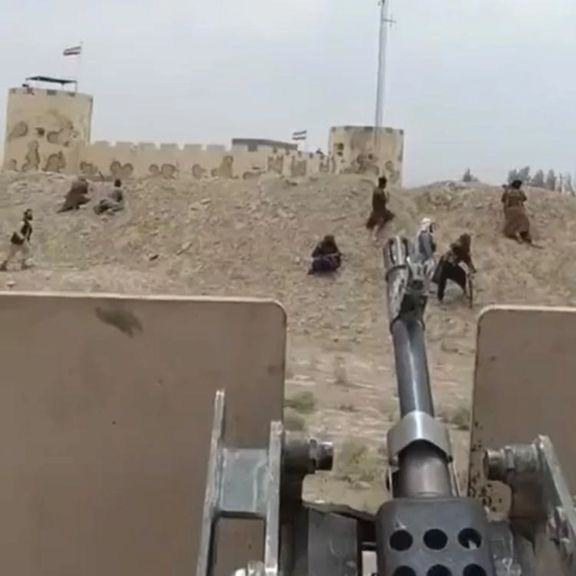
Two Iranian border guards and one Taliban fighter were killed after shooting broke out near a border post on Saturday.
It was not immediately clear what had provoked the incident, in which several people were also injured, but it came amid tensions over water rights.
Iran has accused Afghanistan's Taliban of violating a 1973 treaty by restricting the flow of water from the Helmand River to Iran's parched eastern regions, an accusation denied by the Taliban.
"Today, in Nimroz province, Iranian border forces fired toward Afghanistan, which was met with a counter-reaction," spokesman for the Taliban-run interior ministry, Abdul Nafi Takor, said in a statement.
"The situation is under control now. The Islamic Emirate does not want to fight with its neighbors," the spokesman said, without identifying the victims.
He said one person had been killed on each side and several injured, though Iran's official IRNA news agency later said two Iranian border guards had been killed and two Iranian civilians injured.
Following the clash, Iranian authorities closed the Milak – Zaranj border post, a major commercial crossing - and not the site of the clash - until further notice, IRNA said.
Iran's deputy police chief, Qasem Rezaei, said earlier: "Taliban forces started shooting at the Sasoli checkpoint ... drawing a decisive response.”
Iran's border guards said in a statement they had "used their superior heavy fire to inflict casualties and serious damage", without giving details.
A Taliban defense ministry spokesman said the Taliban "considers dialogue and negotiation to be a reasonable way for any problem. Making excuses for war and negative actions is not in the interest of any of the parties.”
Earlier in May, Iranian President Ebrahim Raisi warned the Taliban over disregarding Iran's water rights under the 1973 treaty. The Taliban rejected Raisi's perceived threat, with a former Taliban official mocking Raisi in a video that went viral.
Report by Reuters
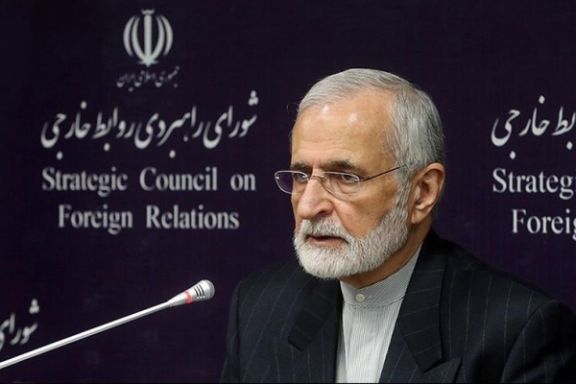
Kamal Kharrazi, a foreign policy advisor to Iran's Supreme Leader Ali Khamenei, has left Tehran for Doha to attend an Iranian-Arab dialogue conference in Qatar.
A member of Kharrazi's delegation Hossein Jaberi-Ansari announced the news on Saturday, expressing hope that talks can take place that would enhance regional cooperation.
Semi-official ISNA news agency reported that this round of talks will be held with the joint initiative of the Strategic Council of Foreign Relations of Iran and Al Jazeera Studies Center.
Kamal Kharazi, Head of the Strategic Council of Foreign Relations, will be the opening speaker of the conference.
The focus of this round of talks is on economic security and examining solutions and approaches to resolve crises, according to ISNA.
Qatar has good ties with Iran, with which it shares a giant gas field in the Persian Gulf. Tehran supported Doha after Saudi Arabia and its Arab allies imposed a boycott on Qatar in mid-2017 in a dispute over its ties with Islamist groups and with non-Arab Turkey and Iran.
Qatar's emir said last year that his US-allied country was ready to do what it can to help bring a solution between Iran and the major parties at talks in Vienna to salvage the nuclear deal, which Washington pulled out of in 2018.
Reports in January 2022 spoke of Qatar acting as a mediator to arrange direct talks between Tehran and Washington. But Iran rejected negotiating directly with the US.
Talks to revive the JCPOA reached a deadlock last September after 18 months of negotiations.
US officials have repeatedly said that their focus is not on the JCPOA negotiations any longer, but Washington is rather focused on the Islamic Republic’s suppression of its people and Tehran’s military support for Russia in the invasion of Ukraine.
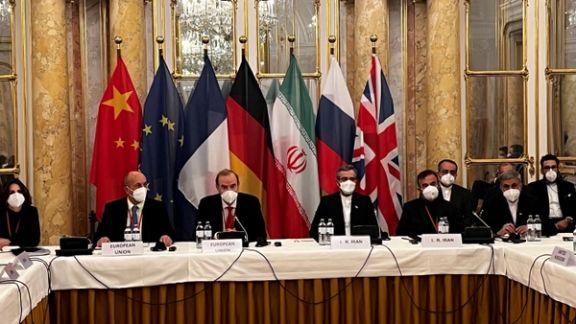
Talks between Iran and the US on the release of Tehran's frozen assets could result in a deal soon, a source with direct knowledge of the talks told Iran International.
Apparently, the talks that have made progress focused on Iranian funds held in Iraq and South Korea. The money in Iraqi banks could be as much as $10 billion or more by most recent estimates mentioned by Iranian officials. Iraq imports natural gas and electricity from Iran but is barred by US sanctions to make dollar transfers to Tehran.
South Korea holds $7 billion, which it owes for importing Iranian oil prior to full US sanctions imposed in May 2019.
The implementation of the deal, however, will take time, the source told Iran International.
Iran is expected to show more flexibility on issues related to its nuclear program in exchange for the release of its funds in Iraq, and free hostages with dual nationality in exchange for its assets in South Korea. Currently there are three dual nationals with American citizenship and two individuals with US permanent residency held by Iran on trumped-up charges of espionage.
The three citizens are Siamak Namazi, Emad Sharghi and Morad Tahbaz, while Jamshid Sharmahd and Shahab Dalili are US permanent residents.
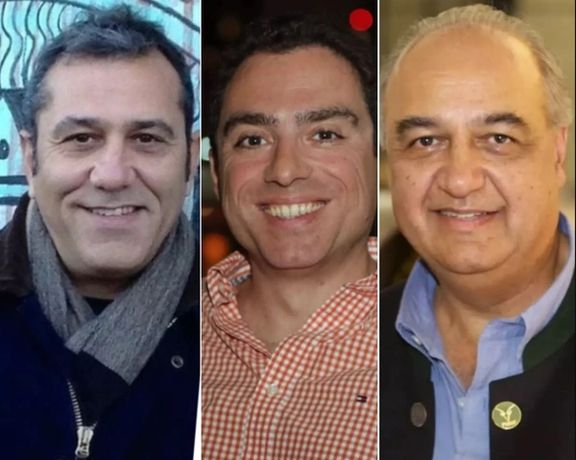
Iran International asked specific questions from the US State Department regarding the information obtained from our source. The press office relayed the following general response:
"We remain committed to securing the freedom of all US nationals who continue to be wrongfully detained overseas, and we are working relentlessly to bring them home, including Siamak Namazi, Emad Shargi, and Morad Tahbaz. We will not stop until they are reunited with their loved ones, but we have nothing to announce.
We do not discus diplomatic efforts, and would caution any reporting that purports to do so, which is often false and misleading."
Whether this can be interpreted as a clear denial or a careful response trying to thread on the edges, is up to debate.
Iran International had received unconfirmed information earlier this year that a deal had been worked out by the State Department to secure the release of the American prisoners in exchange for the $7 billion held by Seoul, but that the White House had not given its green light.
It is not clear if release of hostages pertains only to US nationals or also to other Western prisoners held by Iran. On Friday, however, Iran and Belgium exchanged two prisoners - an Iranian diplomat and intelligence agent Asadollah Assadi held in Belgium on a terrorism conviction and a Belgian aid worker Olivier Vandecasteele.
Axios had reported in early April that the Biden administration had been entertaining the idea of a “partial nuclear deal” with Iran and had discussed it with allies. Axios referred to ten Israeli and Western sources in establishing the information.
In exchange for freezing Iran’s uranium enrichment at 60 percent the US would ease some sanctions. If true, Iran would have gained the advantage of being a few months away from producing 90-percent enriched uranium needed for a nuclear weapon and enjoy the benefits of sanctions relief.

The report said Israeli officials told the Biden team that Iran would be treading on dangerous ground that could lead to an Israeli military strike if it enriches above the 60-percent level.
Iranian pundits, allowed to speak by the regime, and government-controlled media have also been discussing the possibility of a partial deal in recent months.
However, the US State Department at the time dismissed reports about considering a partial agreement.
Deputy Spokesperson Vedant Patel in response to a question by Iran International said that the talk of an interim nuclear deal was “rumors” that “tend to seldom be accurate.”
He added that President Joe Biden “has long said that he's committed to ensuring Iran never get to nuclear weapon, and we still believe diplomacy is the best way to achieve that goal. At the same time, we're preparing for all possible options and contingencies in coordination with our allies and partners.”
This was basically the same response given to Axios before it published its report, which did not categorically deny the information but tried to categorize it as a rumor that could be inaccurate.
Iran has accumulated enough uranium enriched to 20 and 60 percent purity that it could produce at least two nuclear bombs within months, most Western and Israeli officials and experts agree.
The Biden administration announced last October that pursuing talks for reviving the 2015 JCPOA nuclear deal abandoned by the Trump administration was not its priority anymore. Iranian delivery of drones to Russia and its deadly crackdown on anti-government protesters in the second half of 2022 were reasons to discourage the administration that had already spent 18 months in indirect talks with Iran.